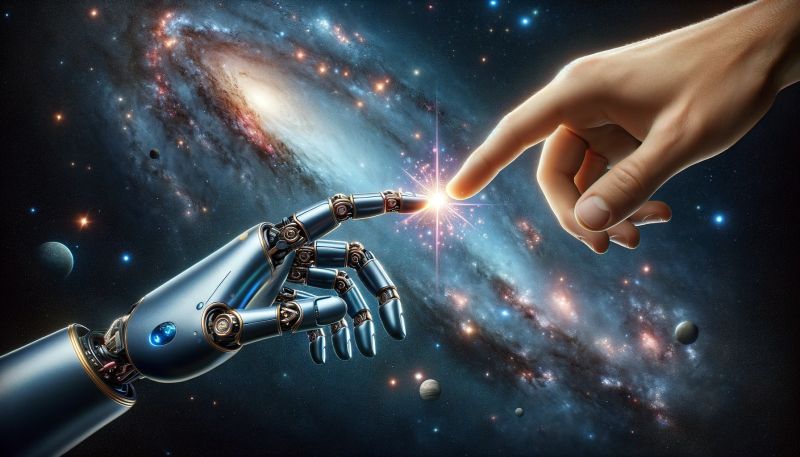
AI Terms Explained
Artificial General Intelligence (AGI)
Superintelligent AI may eventually surpass human capabilities in specific domains, but the future might be better shaped by viewing AI as a complementary force that handles precision tasks while allowing humans to focus on emotional, creative, and fulfilling aspects of life.
Artificial General Intelligence, or AGI, refers to AI systems that can understand, learn, and apply knowledge across a wide range of tasks and domains, much like a human being. Unlike specialized or narrow AI, which is designed to perform specific tasks or operate in particular domains, AGI encompasses a broad range of cognitive abilities.
Are we there yet?
While systems like ChatGPT and similar AI models do exhibit behaviors that resemble human intelligence, there are several reasons why they are not considered AGI.
First, the apparent understanding that these systems demonstrate is largely a result of pattern recognition from extensive training data. They generate responses based on statistical likelihood rather than true comprehension. While it may be hard to tell the difference, and some would argue that humans work the same way, it doesn’t equate to the human-like understanding AGI aims for.
The depth and flexibility of knowledge in current systems are a reflection of their training. While they can cover a wide range of topics, their depth is often uneven and lacks the genuine learning from experience or forming new understandings that AGI would require.
Most importantly, AI systems like ChatGPT lack consciousness, self-awareness, and emotional understanding. They can simulate it, but don't have personal experiences or emotions; their responses are generated algorithmically, not through subjective experience.
In tasks requiring precision, neutrality, and the ability to process vast amounts of data rapidly, AI has already demonstrated capabilities beyond human reach. But they can’t live in the world like we can. At least not yet.
Suppose AGI is achieved, what then? Consider this: human-level ability is not an upper limit, it's only a speed bump. We need to plan for what happens next.
Can AI surpass us?
I think this is what people are most apprehensive about. Superintelligence (SI) is a stage beyond AGI, where AI surpasses human intelligence in all aspects. Superintelligent AIs could perform cognitive feats that we cannot even fully comprehend. This level of intelligence could lead to exponential advancements in technology, science, and many other fields.
Already, the best machine chess programs far surpass the best human players. Chess players are rated on the Elo scale, and the highest-rated human (currently Magnus Carlsen) is rated 2882 according to the most accepted measures. On the same scale, chess programs have achieved Elo ratings as high as 3704. No human grandmaster has won a tournament against a computer since 1996 (Kasparov vs. Deep Blue). But that didn’t end the game of chess. Computer-inspired play opened up new thinking about the game. Grandmasters don’t play against computers now; instead, they use them to challenge themselves and improve their game.
Where do we go from here?
In the ever-evolving landscape of AI, a key ambition has been to develop machines that match or surpass human intelligence. But what makes us so special? Are we setting the right goal, or are we just flattering ourselves?
After all, humans have limitations. Our thinking is often influenced by biases, emotional factors, and cognitive limitations. Perhaps a different approach is needed: Let AIs do AI things and humans do human things. Here's what I mean.
AI offers capabilities distinct from human intelligence for tasks requiring precision, neutrality, and processing vast data rapidly. Computers can operate continuously without fatigue. On the other hand, human intelligence involves consciousness, emotions, ethical reasoning, creativity, and other cognitive abilities not fully understood.
Imagine a future where we turn over routine, unemotional, repetitive tasks, allowing humans to focus more on aspects of life, bringing joy, fulfillment, and growth. In this vision, AI acts as a catalyst for a more fulfilling human experience by taking care of necessities so people can focus on living more fully. While this is an idealistic view, it also suggests a goal where technology exists in symbiosis with humanity, enhancing rather than replacing the human experience.
Are you worried about AI? We can help you use it to get ahead instead.

